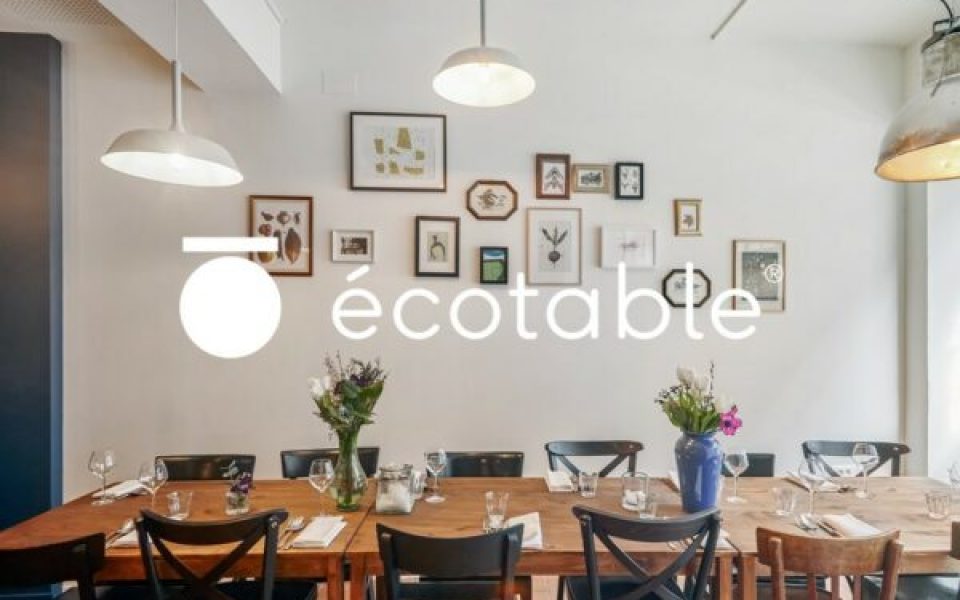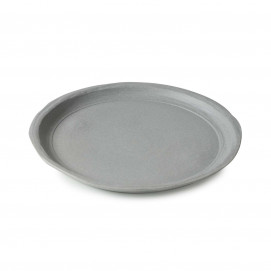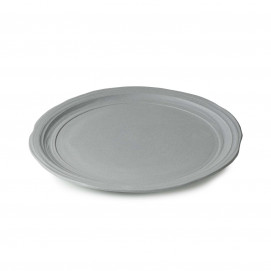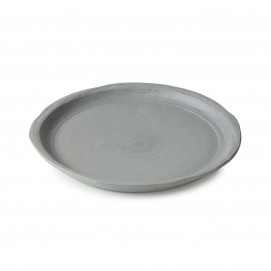Interview – Eco Ambassador > Écotable and the eco-commitment of Chefs
When Revol crossed paths with Écotable at the start of 2020, we knew we had common values. This French-based initiative is in line with the commitments we make as a brand manufacturing Porcelain. It is rather a good sign for the future of food service in France – and potentially Europe. We are witnessing a real ecological commitment from the Chefs but also from the consumers!
Écotable was created by three childhood friends – Fanny Giansetto, Camille Delamar and Rodney Paul – with an ecological sensitivity. They made the following observation: we lack information when it comes to eating out. Do these restaurants respect the ecological principles that we try to follow at home?
They therefore decided to create a Social and Solidarity Economy company in 2019 after a year of studies and support from the Woman4Climat program. By doing so, they address information to professionals and consumers who can now, thanks to the Écotable label, have a better idea of where they are going to eat.
I spoke with Camille Delamar, one of the three founders and currently Managing Director of Écotable, in their offices in the town hall of the 10th arrondissement in Paris.
« Good on my plate, good for my planet»
The Écotable offer is available on several levels. It is aimed at restaurant owners and directors of major restaurant groups. In addition, it includes, among other things, an environmental audit. “To analyze the environmental impacts of a restaurant and help them improve this impact” explains Camille. Then follows a set of concrete recommendations and access to a network of service providers to find the right contacts and support them as best as possible. A tailor-made training and support offer is also available. Finally, the Écotable label allows places to be promoted to the general public.

« Écotable is also an association called La Communauté Écotable (Écotable community) – which anyone can join. This community aims to unite an ecosystem around sustainable food,” explains Camille. This association lives through events and campaigns. For example, “Let’s restore caregivers sustainably” is a campaign that was carried out during the lock down in order to deliver 25,000 meals to caregivers. It is currently resuming its activity with committed breakfasts dedicated to the themes of sustainable food.
The restaurant owner and the awakening towards the environmental impact
« Restaurant owners realize that they are actors and that they have an environmental impact”
Indeed, 60% of restaurant owners are convinced that they have a share of responsibility in sustainable development. Thus, they believe that this is a strong trend in society. (source: METRO)
It is still necessary to have the tools to carry out its ecological transition. “The labeling is not enough,” explains Camille. “It must also be completed with an audit (a labeled restaurant is then audited every six months), a concrete action plan and a roadmap, but also a directory of service provider. Without forgetting the communication through tools to promote this approach with the teams and the consumer. »
Thus, this approach accessible to all, can impact all types of restaurants, and “not just the new gourmet restaurants in the eleventh arrondissement”, explains Camille. It also affects Michelin-starred hotels, palaces, small and large restaurants. “It is a transversal approach, which is done with the implementation of actions on different levels”. On the other hand, to be labeled, certain mandatory criteria must be met.

A politicized trend
« We observe a big acceleration in France of this eco trend because of the Olympic Games : more and more actions are taking place to promote sustainable food»
Especially at the level of the city of Paris with their Sustainable Food Plan. Or the ambition to make Paris a plastic-free city by the Olympics. Camille also mentions the Egalim law at the national level. This law promotes, among other things, the fair price to producers, the health, environmental and nutritional quality of products, but also promotes healthy, safe and sustainable food for all (source: agriculture.gov). There is also the problematic of waste recovery, the mandatory “to go bag” by 2021 to name others. “All this context leads to a real acceleration of things. Today , the restaurant owners come to us, to find solutions”.
And this process has accelerated a little further with the pandemic. Camille explains, “a study by the newspaper Le Monde showed that at the heart of the pandemic the three priorities of the French were: health, the pandemic and the environment. The French started doing things by themselves. Making their own bread for example, etc and they consumed more local. We witnessed an explosion of short circuits during the lock down,” notes Camille. Chefs have also had this awareness and it is felt today in their approach. The ecological commitment of Chefs is therefore evolving.
A return on investment at least equal to 3
“The chef who wants to start a responsible approach often lacks time and resources”. The approach is certainly costly at the start, but there is a return on investment “at least equal to 3”. In particular because in the long term, the restaurant owner will save energy, supplies, etc.
“One must choose their fight and not fight everything at the same time”. For example, there is the subject of non-food, not only what is on the plate but the plate itself, furniture, cleaning products. These are changes that are made little by little. But in a successful approach, we ensure that everything is impacted. The short circuit, green energy, non-food products, textiles… “We start from the content of the plate then we move up to everything else” says Camille. “At the end of the chain is saving water and energy. »
The snowball effect
“Some chefs are very media-friendly, so they share their approaches”. Écotable also offers a communication kit to promote the concrete actions taken by the restaurant with their customers and staff. The Écotable website also shares information in the form of an interview of labeled restaurants. All this creates a “snowball effect” or in other words a network of ambassadors who share their experiences and encourage their peers to do the same.
Sur le Grill, the Écotable podcast, also aims to address all these topics. Thus, various stakeholders and experts testify to their ecological commitment and their initiatives.
And the snowball effect should continue. “We have launched a fundraiser with Lita, a responsible investment platform, to finance the development of a work tool that will allow restaurateurs to be more independent in carrying out their auditing, but also to contact a larger market. Anyone can become an Écotable shareholder. The goal is to create a platform at the heart of a sustainable business model for restaurants.”
Eating well
For consumers, the promise of eating in an Écotable-labeled restaurant is simple: eat well, “good food for the environment and for their health”. Ecology may not be the main criteria when looking for a restaurant. But organic, vegetarian, local and seasonal are increasingly sought-after criteria. And if the label is not yet present, Camille gives us some details to watch out for in restaurant practices. This will eliminate 60 to 70% of places unfortunately. You also have to respect the seasons. Offer a vegetarian choice and a short menu that changes regularly. Pay attention to single use (on bottles, stirrers, towels). Finally, question the staff to find out if they are able to answer questions about where the products come from, for example.
What does the future hold for us?
Écotable has the ambition to initiate a fundamental change in the restaurant world. They must be carried out by political, societal and health actions. Thus, the pandemic has shaken up certain restaurant rules, in particular with “click and collect” and delivery. However, these changes must be made with respect for the environment, via a “deposit system”, more ethical delivery methods and less plastic. On this subject, Écotable launched at the start of the school year, in collaboration with Olvo and CoopCycle, an ethical and responsible delivery platform in Paris: RESTO.PARIS
The ecological commitment of the Chefs as well as the health crisis will redesign the world of tomorrow.

Interview conducted by Tenaya Santos da Silva.
Visited the écotable website here.
Podacst here.







